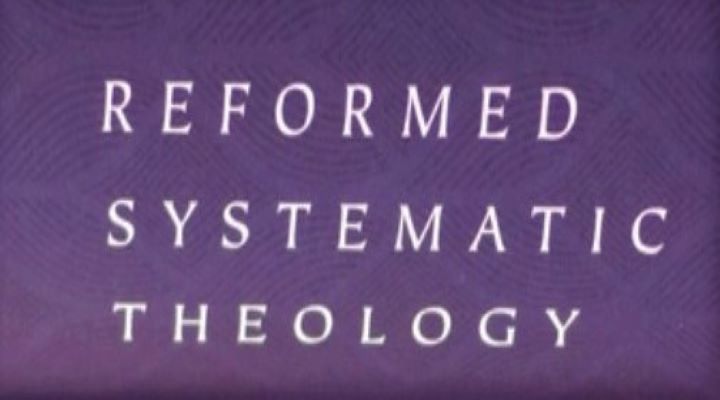Beeke, Joel R., The Christian Teacher as Office Bearer. Conway: Free Grace Press, 2020. 64 pp. $10.00.
Biographical Sketch of the Author
Joel R. Beeke is the president and professor of systematic theology at Puritan Reformed Theological Seminary. His other books include Puritan Theology: Doctrine for Life, Heirs with Christ: The Puritans on Adoption, and Parenting by God’s Promises: How to Raise Children in the Covenant of Grace. We have been blessed to have Dr. Beeke as a guest on our Roundtable Podcast and you can find our reviews of some of his other books here, here, and here.
Introduction
In Paul’s letter to the Ephesians, he writes that Christ gave gifts, including “teachers” for the building up of his body, the church (cf. Ephesians 4:11–12). The Christian Teacher as Office Bearer is a short but potent new book from Joel R. Beeke addressing the calling of the Christian teacher. By “office bearer,” Beeke is not necessarily referring to those who hold a formally ordained “office” in a church. Rather, the primary theme of this book is that the Christian teacher is called to reflect Christ in his offices as prophet, priest, and king (3).
In the introductory chapter, Beeke lays out a vision for a teacher-valued, Christ-centered, and Reformation-grounded approach (1–11). The author quickly makes real-world application for this framework when he writes, “Only the Christian teacher can invite (an) abused child into the arms of a loving heavenly Father in whom he can finally find love and make sense of a sin-shattered life and from which he can stop the abusive cycle and lovingly raise the next generation in godliness (5).”
The Prophetic Office
In the first chapter, “Bearing Christ’s Prophetic Office as Teachers,” Beeke does not mean “prophetic” in the sense of telling the future (13–26). Here the author cites the biblical definition of a prophet as one whose “essential task … is to receive divine revelation and to be God’s spokesperson to people (14).” The Christian teacher’s responsibility is to “humbly receive God’s written word,” “confess (his) own faith,” and “proclaim the whole counsel of God.” Beeke’s takeaway guidelines for teachers in their prophetic office are that they teach with a biblical framework, with passion, by example, as students of the Word themselves, and seeking the holistic maturity of their students (15–26).
The Priestly Office
The second chapter moves on to Christ’s office as our Great High Priest and how teachers can model Him. Citing the Heidelberg Catechism’s Question 31, Beeke affirms Christ’s unique role as “our only High Priest” (see Hebrews 5:1–2). At the same time, all believers are described by Scripture as a “royal priesthood” in passages like 1 Peter 2:5,9 and Revelation 1:6 (27–28).
Beeke presents readers with three ways that Christian teachers serve as priests in the classroom. First is to teach sacrificially (28–31), meaning that the teacher is carefully preparing lesson plans and materials, being disciplined in grading, and responding to difficult students in a patient (i.e. Christlike) manner (30). Secondly, the author encourages teaching through sharing the life of the teacher and having “compassion on the ignorant,” per Hebrews 5:2 (33). Thirdly, the teacher reflects Christ’s priesthood through intercessory prayer on behalf of his students (34–39). Unlike Christ, we as teachers must recognize our own sinful weakness and dependence on God’s grace. Beeke puts it well when he writes, “We serve our classrooms as priests by looking to the Great High Priest, whose blood and righteousness can serve the most hard hearted student and drive out the most stubborn sin of a believing student (36–37).”
The Kingly Office
Beeke’s third chapter unpacks what it means for the Christian teacher to model Christ in his kingly office (41–55). He argues that Christian teachers, like all believers, have a responsibility to exercise stewardship or “dominion” (not sovereignty) over creation, per Genesis 1:26–28. The Christian teacher is to reflect Christ’s role as king, to be “images of the King in their classrooms (42).”
The author gives us four ways that teachers can demonstrate kingly authority. First, the teacher can shepherd students as a Servant-King (43–44). We teach and serve with authority but also submit ourselves to God. So, in essence, the teacher who bears Christ’s kingly office “is not wielding authority but standing under authority (43, emphasis original). Next, as a natural outflow of this first principle, teachers empower students to labor and serve in God’s world as Servant-Kings themselves (45–49). Thirdly, the teacher is to defend his students as “a gentle warrior” in the sense of knowing when to provide nuance and sensitivity and when to take clear, bold, and unwavering stands (48–51). I was reminded of Calvin’s famous line about shepherds needing to have one voice for their sheep and another for the wolves. Finally, the teacher as Servant-King must consistently discipline students in ways that are loving and honorable (53–54).
Conclusion
I appreciated that the author was willing to use the potentially confusing terms of prophet, priest, and king in describing the task of Christian teaching. In his concluding chapter, Beeke is careful to explain that the Christlike offices should not be practiced in isolation from each other. For example, “priestly gentleness is always fortified with a prophetic truth-bearing and our kingly disciplining is always sweetened with a priestly approachability (58).”
The Christian Teacher as Office Bearer does not present a simplistic “What Would Jesus Do?” way of “being like Jesus.” Joel Beeke gives readers a wonderfully biblical, theologically rich, and yes, aspirational vision of what it means to reflect Christ to students. This little book left me challenged, convicted, and inspired to take seriously the blessing, opportunity, and responsibility of teaching God’s Word to God’s people. Highly recommended.
A copy of this book was provided by the publisher in exchange for an honest review.





